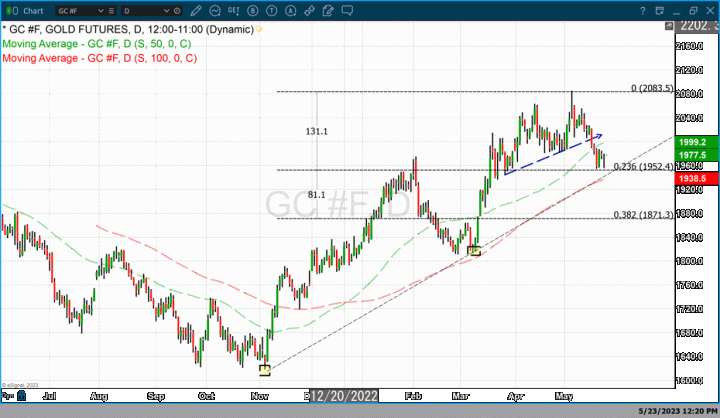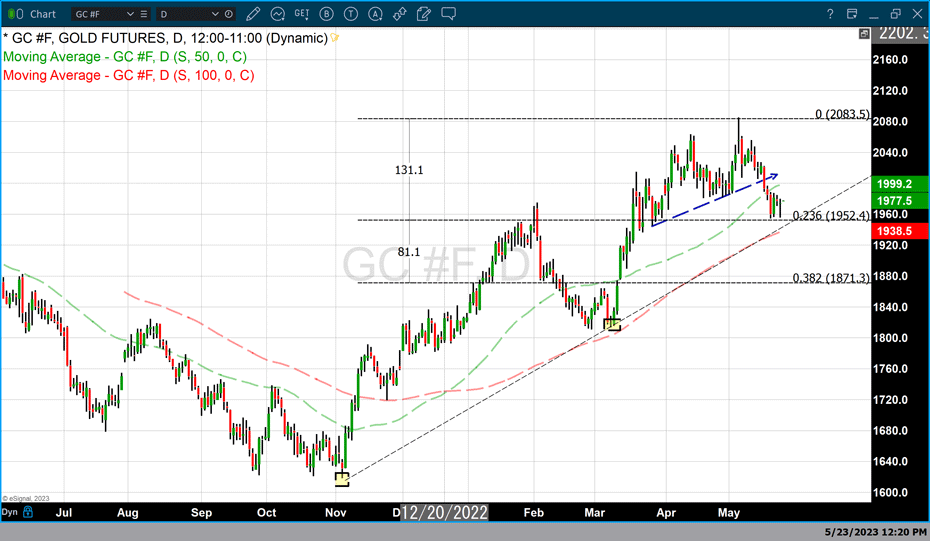

Short-term T-bills maturing between June 6th through 15th are currently yielding 5.997%, an indication of the angst regarding whether a debt ceiling resolution can be reached on time before threatening a government default of its financial obligations. The uncertainty regarding the negotiations has moved the one-year T-bill with an issue date of June 2022 maturing on June 15 to a yield of 6.141%.
This is because T-bills maturing between June 6 and 15th are seen as the riskiest investment with the real possibility of delayed payment, according to Lawrence Gillum of LPL Financial. According to MarketWatch, "At the moment, the T-bill market is in a state of dislocation — one in which yields ranged from as little as 2.924% on the government obligation maturing on May 30 to as high as 6.141% on the 1-year bill maturing in three weeks."
The financial backdrop created by the uncertainty of a resolution in passing legislation to either suspend or raise the debt limit by the first or second week of June has strengthened the dollar and pushed away the chance for any upside moves in gold.

Gold futures continue to trade near recent lows at around $1960 with resistance occurring just above $1980. Today the most active June 2023 Comex contract gained only $0.30 on the day and is currently fixed at $1977.50. However, it is the low that is most troublesome trading to an intraday low today of $1955.80 before recovering. That being said, the differential between the open and closing prices is just a couple of dollars.
Although gold futures were able to recover off of earlier lows the uncertainty of a debt ceiling resolution is not enough to prompt traders to bid the precious yellow metal higher. This is because the consensus among traders is while there is uncertainty ultimately the issue will be resolved either by a temporary stopgap bill that adds more time and raises the debt ceiling or an actual piece of legislation that both the Democratic and Republican constituents can agree upon.
The debt ceiling has been reached and raised more times than one can count and on the vast majority of occasions, legislators simply played kick the can down the road taking the dilemma to an 11th-hour showdown. However, in this case, it seems a little bit different in that rather than playing kick the can they are playing a high-stakes game of chicken in which both sides are waiting for the other side to blink first. While both the Republicans' and Democrats' desires have components of budgetary concerns that are realistic, the sad truth is that you can’t have your cake and eat it too.
By
Gary Wagner
Contributing to kitco.com
